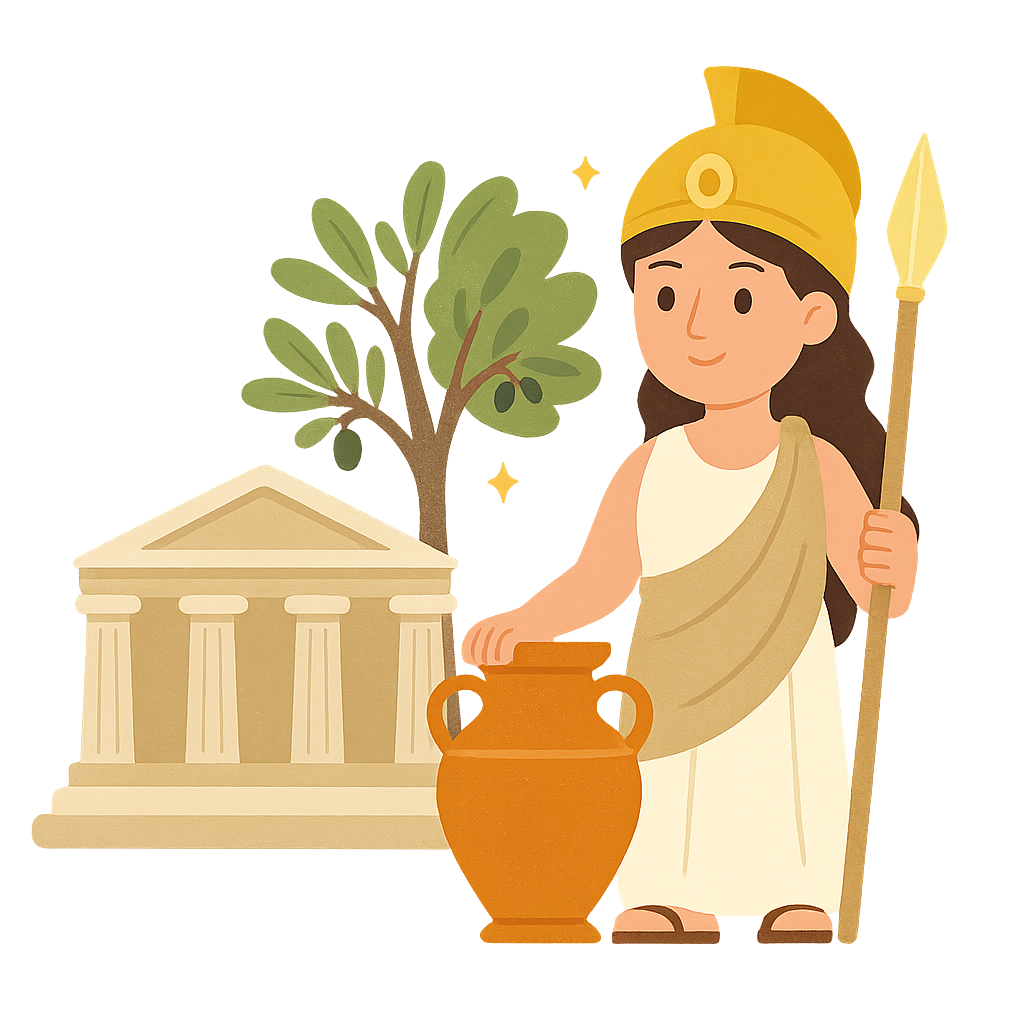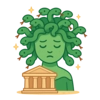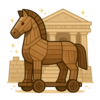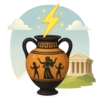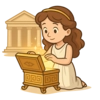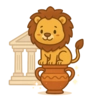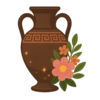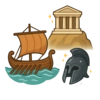The Contest for Athens
My silver eyes have seen many wonders from my home on Mount Olympus, but none so promising as the new city being built on the sun-warmed hills of Attica. Hello, my name is Athena, and I am the goddess of wisdom, courage, and useful arts. I watched the people of this new city work hard, their hands shaping stone and wood, and I knew I wanted to be their protector, their patron. But I was not the only one; my powerful uncle, Poseidon, lord of the seas, also desired this honor. So, a challenge was set before all the gods and the people of the city to see who could give them the most useful gift. This is the story of how that city got its name, a myth the ancient Greeks called Athena and the Contest for Athens. The air buzzed with excitement as everyone gathered on the high, rocky hill that would one day be called the Acropolis. The people looked to us with hopeful faces, wondering what future we would offer them. I knew my gift had to be more than just powerful; it had to be something that would help them thrive for generations.
Poseidon, always eager to show his might, went first. He strode to the center of the crowd, his bronze trident gleaming in the sunlight. With a great shout that sounded like crashing waves, he struck the hard rock of the Acropolis. The ground trembled, and from the crack he had made, a spring of water burst forth. The people gasped in amazement. Water was precious, especially under the hot Greek sun. They rushed forward, but when they tasted it, their faces fell. It was saltwater, as salty as the sea itself. It was a powerful display, but not a very useful one. Then, it was my turn. I did not shout or shake the earth. I walked calmly to a patch of bare ground. I held a small seed in my hand and planted it gently in the soil. Some people looked confused, but I knew that the best gifts are not always the loudest. I whispered to the seed, and before their very eyes, it sprouted and grew into a beautiful, strong tree with silvery-green leaves. It was the first olive tree. I explained to the people all its gifts. Its fruit, the olive, could be eaten. The olives could also be pressed to make rich, golden oil for cooking, for lamps to light their homes, and to soothe their skin. The wood of the tree was strong and perfect for building homes and tools. It was a gift of peace, food, and prosperity.
A Legacy of Wisdom
The people and the gods looked from Poseidon's salty spring to my beautiful olive tree. The choice was clear. They chose my gift of wisdom and foresight over his gift of raw power. In my honor, they named their magnificent city Athens. The olive tree became sacred, a symbol of our connection. For thousands of years, this story was told to children in Athens to remind them that true strength comes from wisdom, creativity, and thinking about the future. It taught them that a thoughtful, practical gift is often better than a big, flashy one. Today, the story of our contest still inspires people. Artists paint it, writers tell it in new ways, and the city of Athens still stands, a monument to the idea that knowledge and peace are the greatest treasures. This myth reminds us that even a small seed of an idea, when planted with care, can grow into something that lasts forever, connecting us all to a time of gods and heroes and the simple, powerful gift of an olive tree.
Activities
Take a Quiz
Test what you learned with a fun quiz!
Get creative with colors!
Print a coloring book page of this topic.

